A Bad Night’s Sleep with Sega Bodega
|PHILLIP PYLE
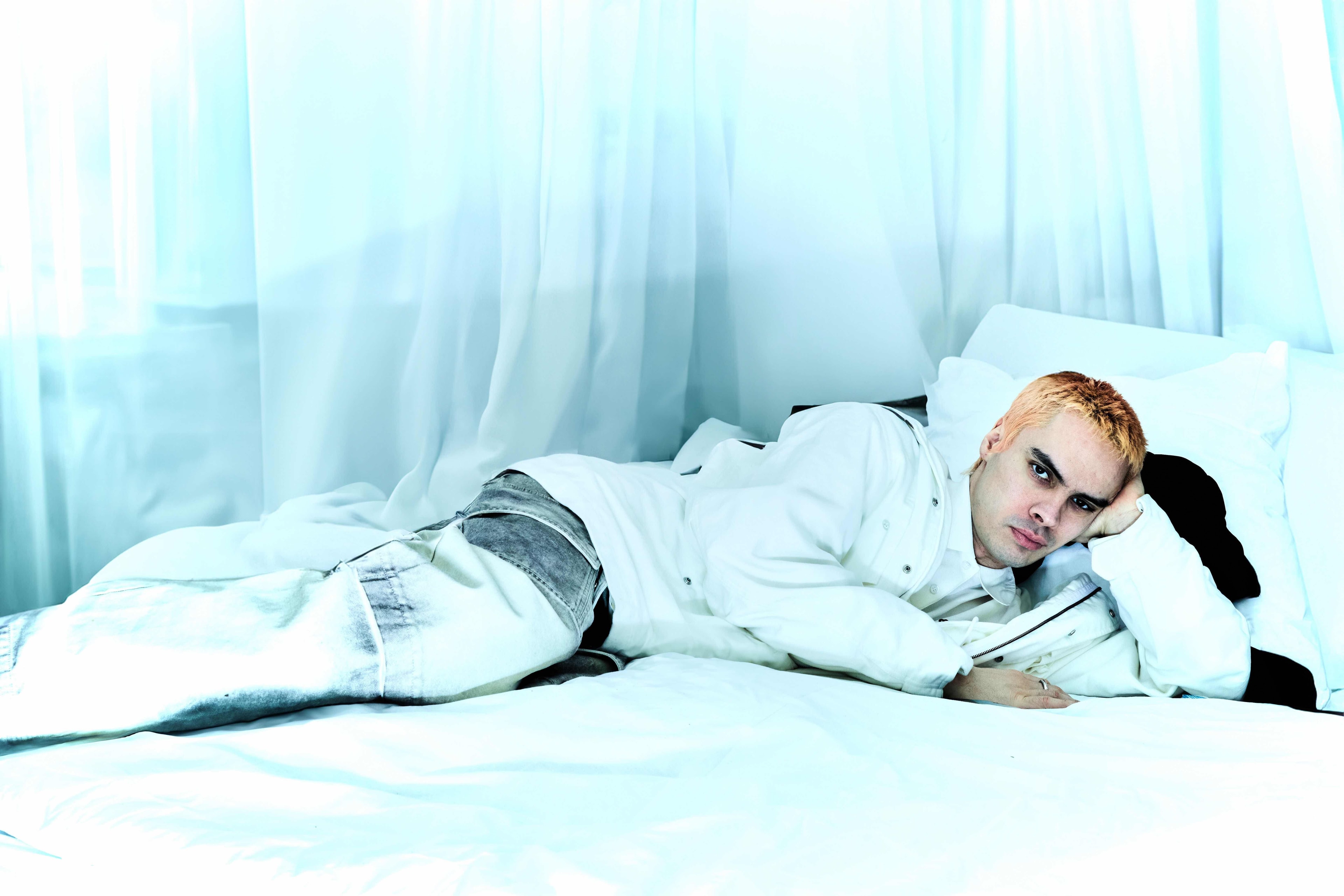
While, structurally, Sega Bodega’s new album Dennis is meant to encompass all five stages of sleep—that is, if you count wakefulness as the first step—the album most obviously takes on the dreaming qualities of REM (Rapid Eye Movement). During this final stage of sleep, your body enters atonia where, for all intents and purposes, you become paralyzed—with the exception of the muscles that aid breathing and the eyes, which move to-and-fro as the sleeper dreams.
Sega Bodega’s (aka Salvador Navarrete) noirish disposition seems to have less to do with his background as a DJ, or his club-inclined beats, and more with a general feeling of restlessness that permeates across his entire discography. Known early on for his deconstructive approach to club music and collaborations with fellow NUXXE label artists Shygirl, Coucou Chloe, and Oklou, the Irish-Chilean producer and artist released his first full-length album Salvador in 2020. Addressing personal matters of addiction, loss, and sex through his trademark balance of sparseness and hyper-complexity, Salvador was the artist’s pained, dark, and—to put things simply—vulnerable entry into the pop genre. Since then, Sega Bodega’s approach has undergone change.
Having now worked with even more figures in the pop vanguard, including Björk, Rosalía, Arca, and FKA Twigs, his music has inevitably taken on as many new affects as it has new sounds. Dennis, the “sister” record to his 2021 project Romeo, is Sega Bodega’s latest nocturnal exploit. It wades in the strangeness of insomnia, moving rapidly between the various physical, emotional, and (un)conscious states of a bad night’s sleep and the confusion of the following day.
Prior to the release of Dennis, I talked with Sega Bodegaabout live streaming the album’s production process, the influence of Luca Guadagnino’s Suspiria (2018), and the artist’s own silver screen dreams.
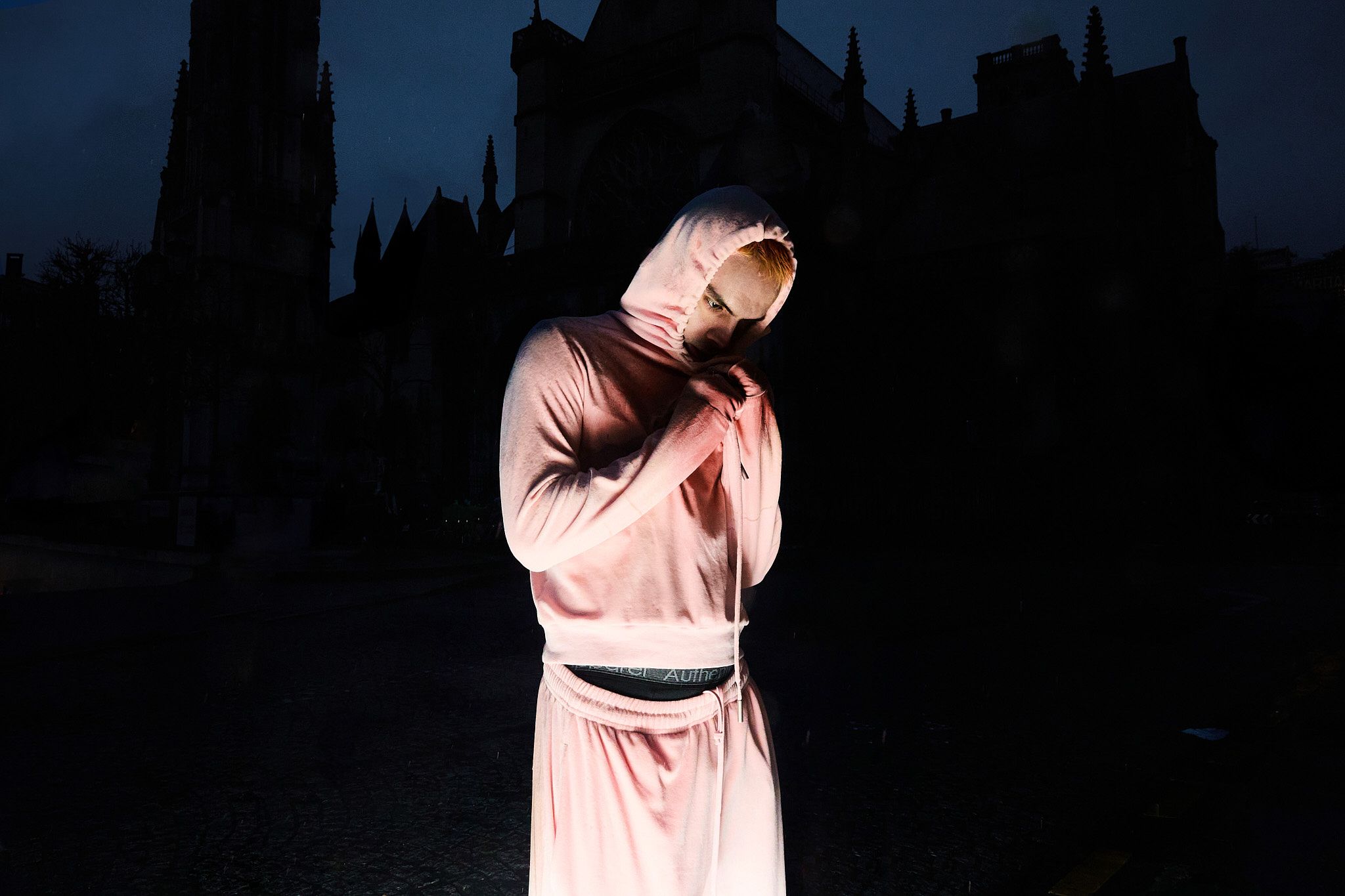
PHILLIP PYLE: Almost half of this album was made and debuted on Twitch prior to its release. What does it mean to air such personal material in a public internet space?
SEGA BODEGA: I found myself trying to make more stuff that people who were watching would dance to, maybe more than I would normally. It felt almost like a live DJ set. Some of the sessions are up on YouTube. I was watching them again recently, and in an hour and a half, I usually ended up having three completely different ideas. It will evolve throughout, becoming very different over the course. I was trying to work in a live performance way, making a live set on the fly rather than sitting and pondering for five hours.
PP: So the music shifted because you were anticipating or taking the audience into consideration?
SB: I felt like there was a touch of pressure there. You can see when people are less interested. The chat room stops. And then sometimes it’d be really active. I usually don’t make music for people, but there was an audience watching, so it felt different. I honestly didn’t love it. But I was trying new things, forcing myself to try a different way of working, and seeing if I could make money. I was seeing some people use it and you can literally see the money coming in.
PP: You’re known for the contrast between your voice, which is fairly soft and often intimate, and the intensity of your production. But, on this album, Dennis, that contrast is less pronounced. Part of it is because you’re dealing with these dreamy or sleepy states, feelings, and ideas. What was going through your head when you were writing Dennis?
SB: I was trying to capture the feeling of a dream, which sounds ridiculous or pompous almost. With my dreams, anyway, I’m in one place, then a fraction of a second later, I’m in a completely different place. And it doesn’t seem strange to me. I was watching Suspiria (2018)—the remake—a lot, and I love how they cut it because the whole thing feels like a dream, like this unusual flow. I was trying to copy that in the way the album flows with quick jumps to new places. That’s why everything’s quite sharply cut. I guess there are some slow transitions, but I was trying to make it drastic.
PP: There’s also this insomniac feeling to it. I was listening to the album again earlier this week on my way to work and it perfectly matched the zombie feeling early in the morning when you’re still between sleeping and wakefulness. Were there any experiences of sleeplessness?
SB: Definitely. I experience auditory hallucinations before I fall asleep sometimes, where I can hear something playing and I know it’s not playing. It is very, very odd. That feeling of being inside your head. Trying to recreate these moments where your brain is failing into an actual song was a fun challenge for me. I think we’ve all experienced that, that fucked up sleep, or even fucked up being awake—when things aren’t working as they should be.
Sometimes, when I’m in a low place, I feel like I’m watching my life through my eyes. And I’m moving and I’m doing things, but I’m way, way, way back in my head. And everything is moving in a way that I’m not connected to. I’m trying to tap into that. The whole idea is that this record is playing out one day in the life of someone who’s going through this disorientated point in their life. The first track is this terrible sleep. You wake up, you start your day, and keep going—and it goes until you go to sleep at night and then, that sleep is much better.
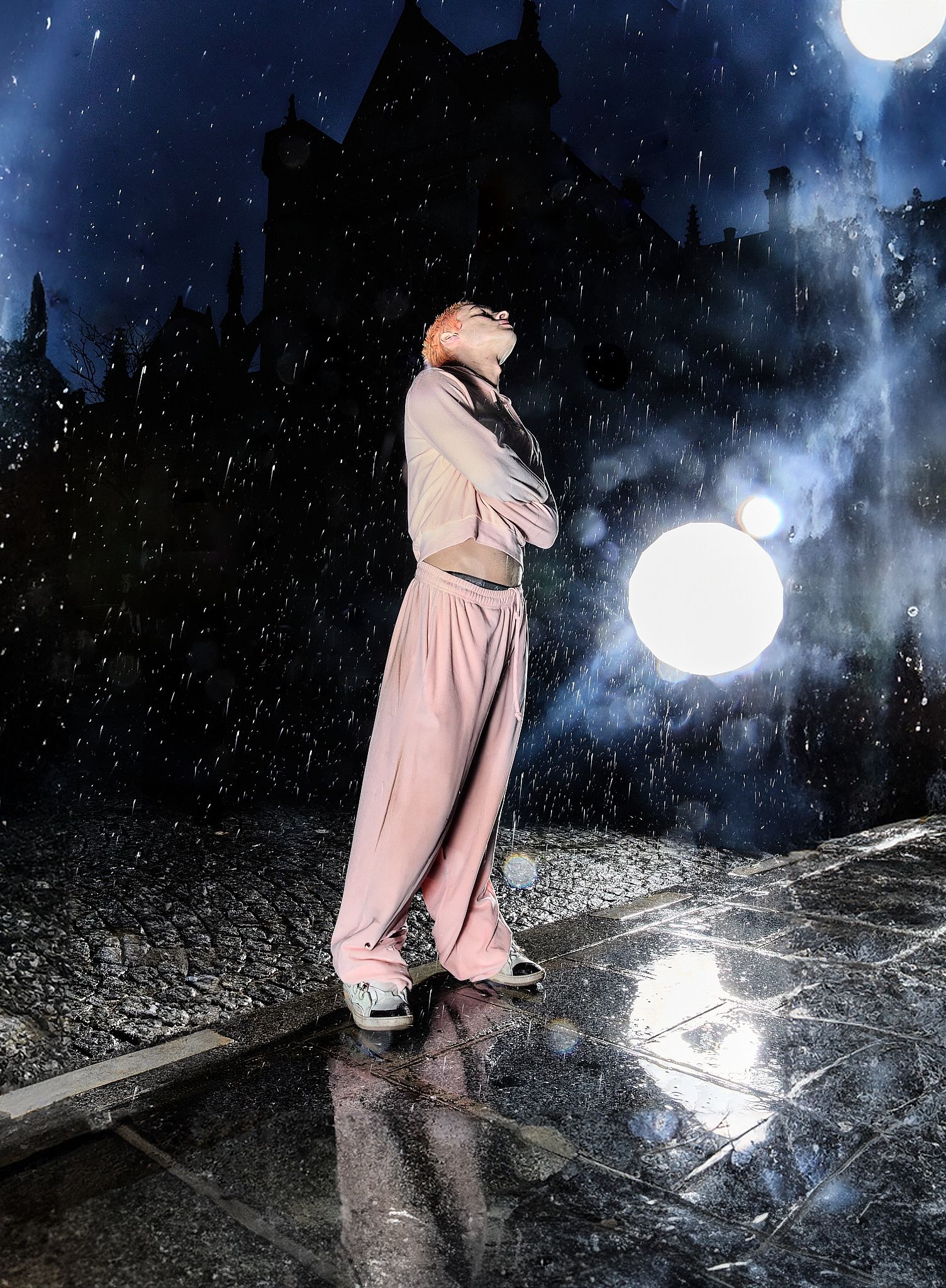
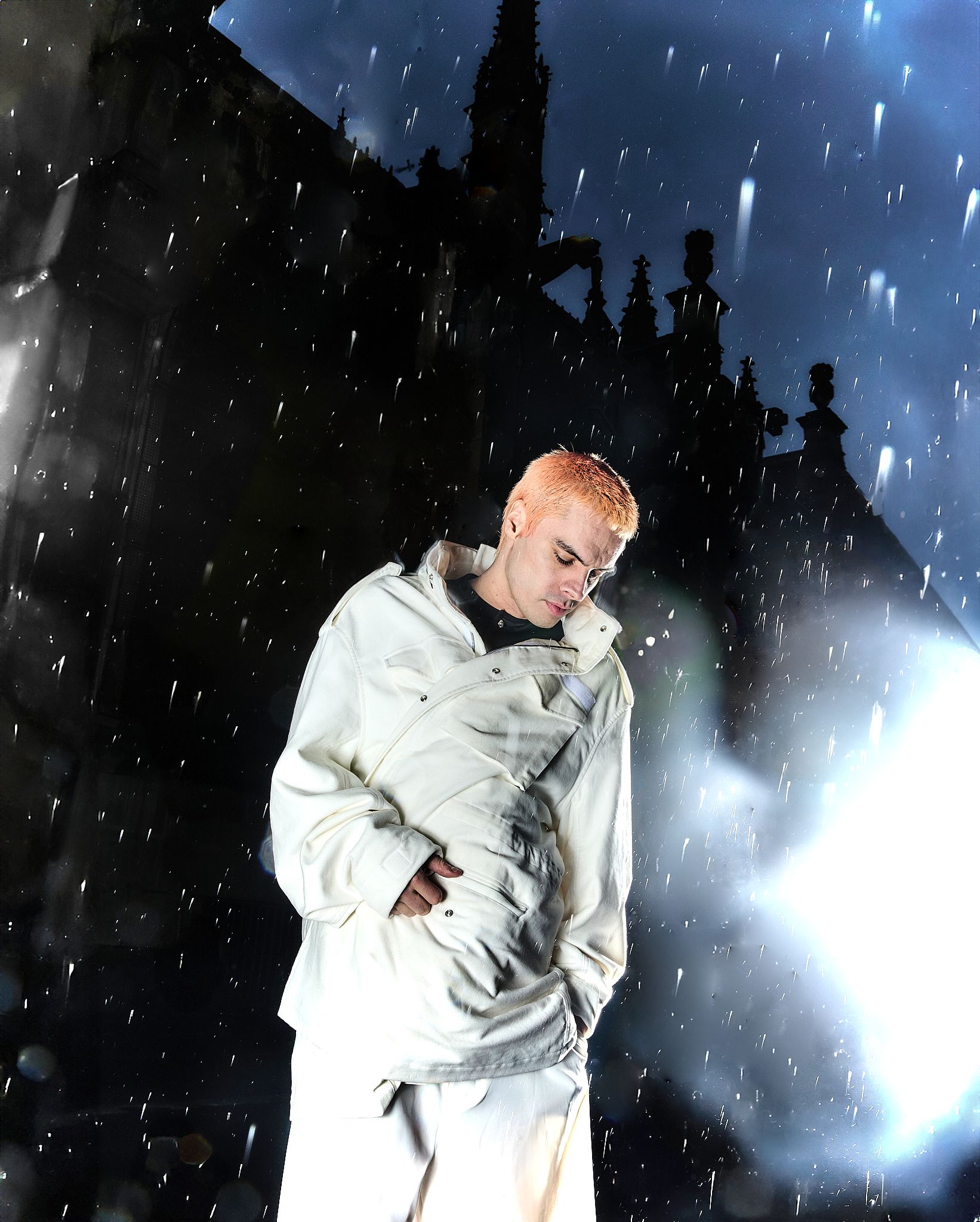
PP: It’s interesting that you mentioned Suspiria also because that automatically carries evil associations with dreaming. Were you interested in exploring that evil aspect, or the monstrosities, that come with this state?
SB: I love the way in which this person [Suzy Bannion] in Suspiria went from being completely new in this space and fascinated by these things to being the thing they were all trying to be, that they were worshipping. There are three mothers, and she’s the one that they’ve been waiting to come back. That feeling of power… I was very attracted to the film for so many reasons. There are a couple of lyrical references from other films that I had been watching, too, like Benedetta (2021). “Tears & Sighs” is a reference to Suspiria because the three mothers are “Tears,” “Sighs,” and “Darkness.” And I sampled the breathing from Suspiria on the second-to-last song, “Humiliation Doesn’t Leave a Mark.”
PP: Throughout Dennis, Miranda July recites different lines that your friend said while sleep talking. How did you choose to work specifically with Miranda on this?
SB: I knew that I wanted this element on the album. But I knew that I needed the voice to be right. It was hard because I couldn’t even imagine who would do it. I have a band called Kiss Facility and the singer, Mayah [Alkhateri], knows how much I’m a fan of Miranda July. And she was like, “Ask Miranda July!” And I sent this DM on Instagram being upfront about how much of a fan I am, of her work and her voice. She did such a good job on Fire of Love (2022). After a couple of weeks, I had all the lines. She did it over a ten-minute phone call, and she was perfect. I’m forever grateful for her taking that time because, again, I’m such a fan.
PP: Film generally has a big influence on your music. You’ve previously made projects based around film scores, such as Eraserhead (1977), Alien (1979), and Ghost in the Shell (1995), and your last album featured vocals from Charlotte Gainsbourg. Could you talk a about your relationship with film?
SB: I want to make music for films. That’s my dream. I am such a fan of film, but I’m not trying to sell myself through these collaborations with people in the film world. It naturally worked out like that. Like, with Charlotte Gainsbourg, that wasn’t intentional. I can’t even remember how that came around. I like designing my music to feel like it’s cinematic. One day, hopefully someone asks me to score a film.
PP: You have such a long CV of production credits and features, especially for someone who regularly releases their own music. How do you balance your production work with making your own music?
SB: For my first album, I had been making a bunch of beats and I gave them to other people—and for them it did very well. And my record wasn’t as much of a hit because I wasn’t giving my best stuff to myself. And then I remember saying to Shy[girl], “Oh, I think this beat would be good for this person.” And she said: “No, you should use this! This is great. You sing on it.” The songs that did the best on my last album, Romeo (2021), were originally meant for other people.
So, I’m not doing that anymore. I have this funny line between working hard on something but also making sure that I’m saving some stuff for myself. Balancing that can be tricky, but I also love working with other producers, too, because I learn so much from them. I get stuck in my own routines, and another producer will usually break that, even by using synthesizers that I never would have thought to use.
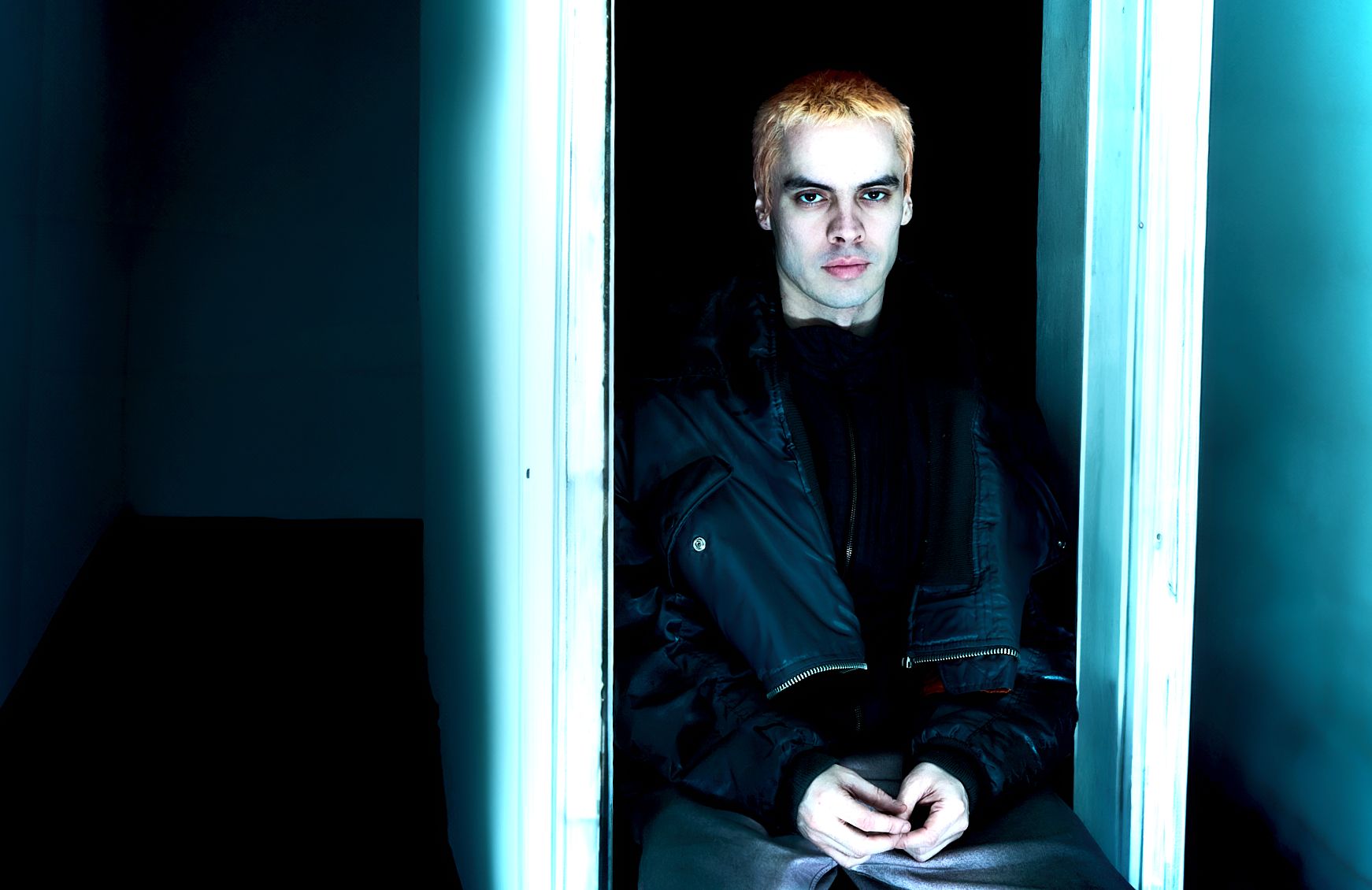
PP: When you’re producing an instrumental, do you make it with an individual in mind?
SB: No, I just make stuff. I build up a folder because making music with people in mind never works. They want me to do what I would do, not what they think I would want them to do. That’s been a thing I’ve had to learn. You’ll show ten beats that you made for this artist, and they won’t really like any of it. Then I’ll show them this completely abstract, left turn that I would never think to show anyone, and they’re like, “Yeah, that’s the one.”
PP: A lot of the people that you came up with, or were producing for from early on, including Shygirl, Oklou, Coucou Chloe, and Caroline Polachek, have grown with you in notoriety. But you still seem committed to regularly working with up-and-coming acts, too. You produced “Tambaleo” for Meth Math, for instance.
SB: I’ll work with anyone that I’m a fan of. I don’t like the idea of only working with big artists because there’s something so exciting about seeing the growth of a new person and being able to be part of that growth. It’s an honor in a way because you don’t know what someone’s going to become. Everyone that we have ever listened to was a new artist at one point.
PP: I was thinking about the progression from Salvador to Romeo to Dennis, and how the vantage point between those albums really changes. It goes from a more introspective and pained place in Salvador to a more imaginative and romantic one in Romeo. Then, Dennis feels like it’s this in-between dream state. Has your mindset consciously changed between projects?
SB: I don’t know if my mindset has changed but these last two albums feel the same in terms of production and the way that I use my voice. I think they’re sister records, or whatever you call it.
PP: But they’re separate from Salvador for you?
SB: Yeah, I didn’t really know what I was doing with that one. I wish I had taken more time to figure out how to use my voice. And with production in general, I was still figuring stuff out.
PP: Dennis is bookended by “Coma Dennis” and “Coma Salv.” It begins with this ominous, somewhat discordant violin, then ends with this lullaby of synths.
SB: The last song is the stages of falling asleep. I was trying to represent the five stages from being awake to falling asleep. There’s four stages of falling asleep but being awake also had to be in there. The key change gets lower and lower as a way to symbolize that. I also liked the idea of bookending the project within a day. Sometimes I need help sequencing an album, which becomes easier when I have a concept.
Credits
- Text: PHILLIP PYLE
- Photography: TEREZA MUNDILOVÁ
- Fashion: STEPHANIE PEREZ
- Production: SERVICES UNITED
- Photography Assistant: Djamila Wick
- Fashion Assistant: LUC VERPAALEN
- Fashion Assistant: CHARLES HENRI WRIGHT
Related Content
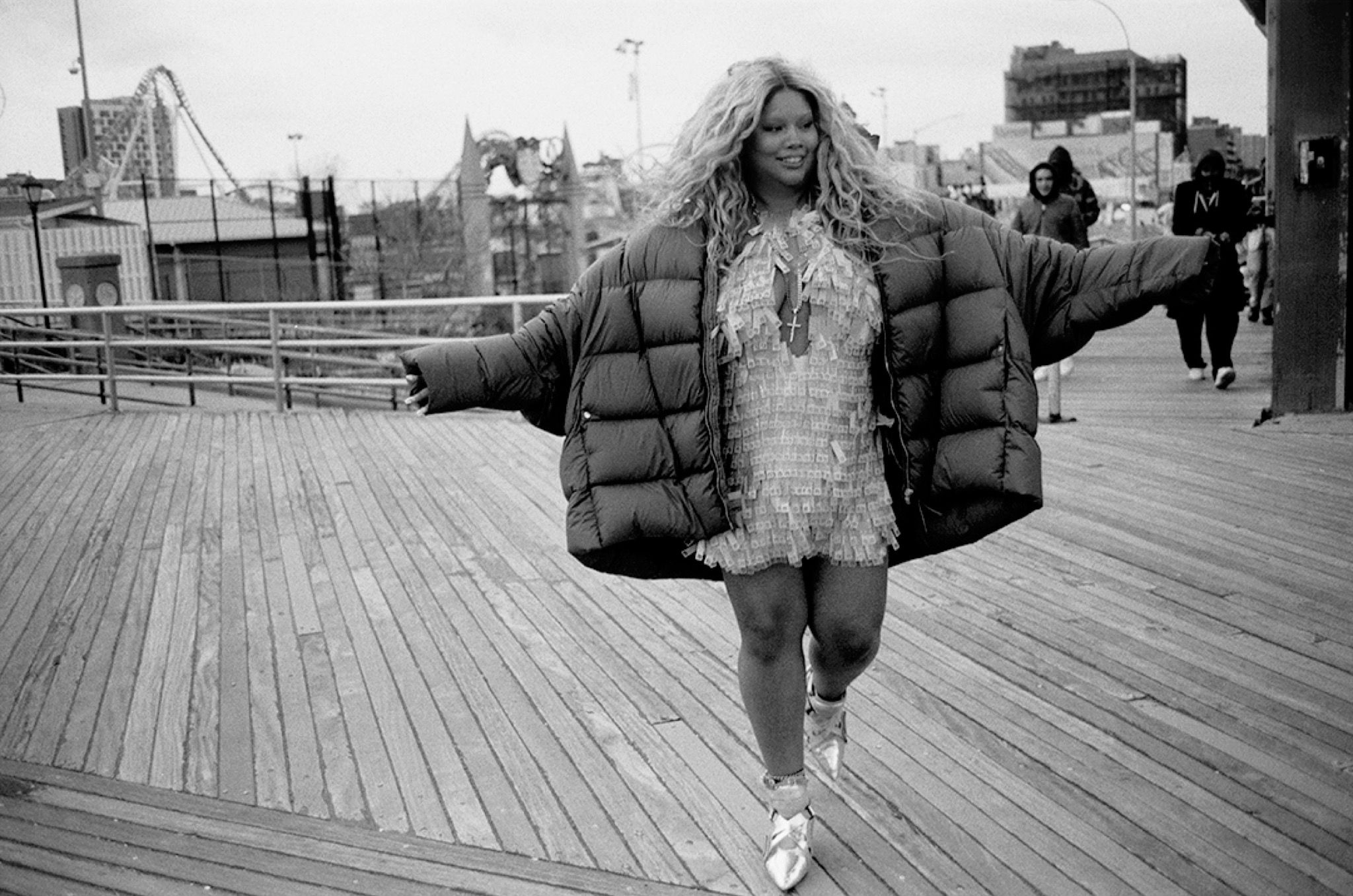
Metagaze: SHYGIRL Stares Back
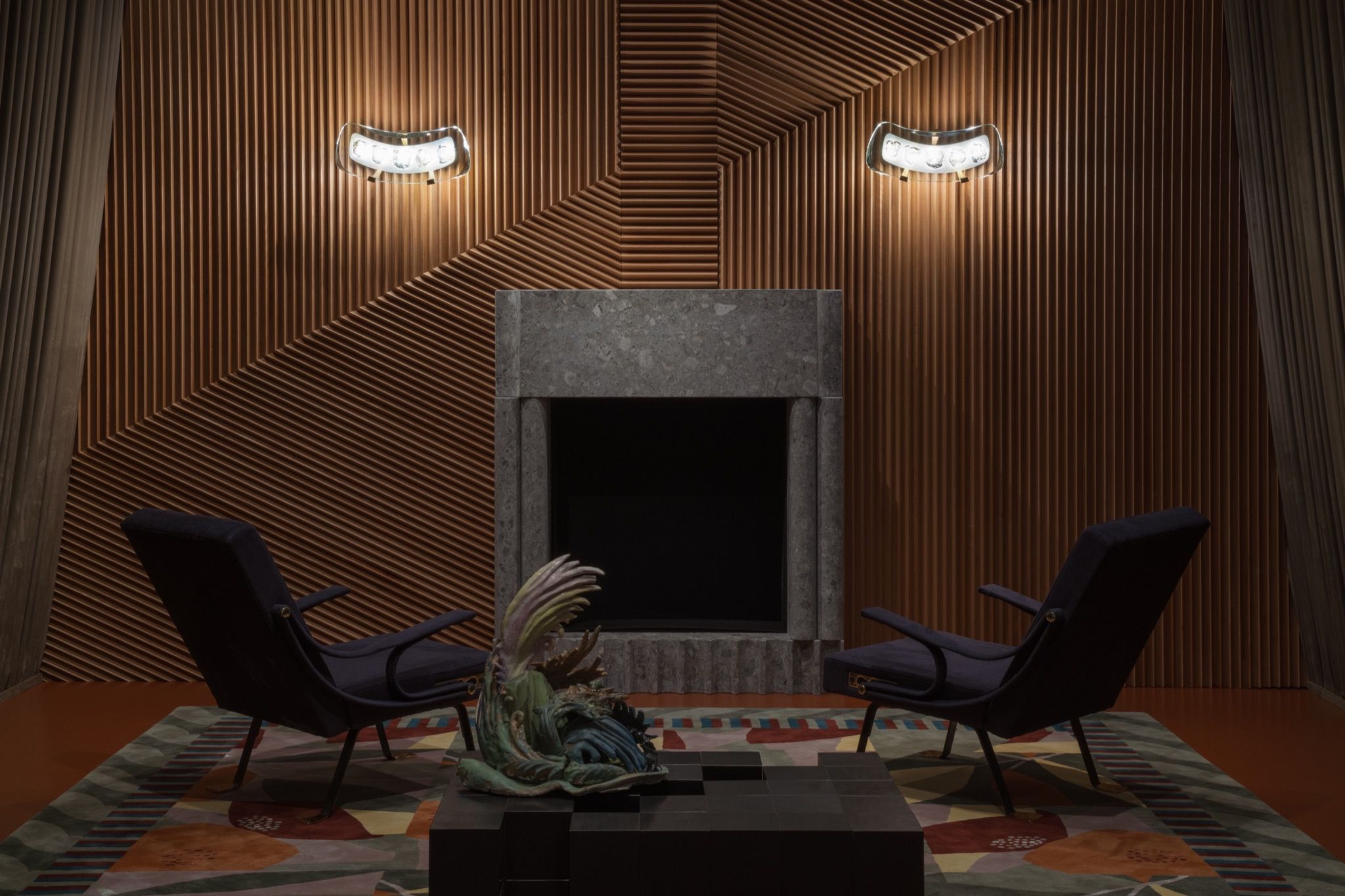
Les Démons de Midi: LUCA GUADAGNINO and CARLO ANTONELLI are Friends, Talking

The Erotics of the Nerd
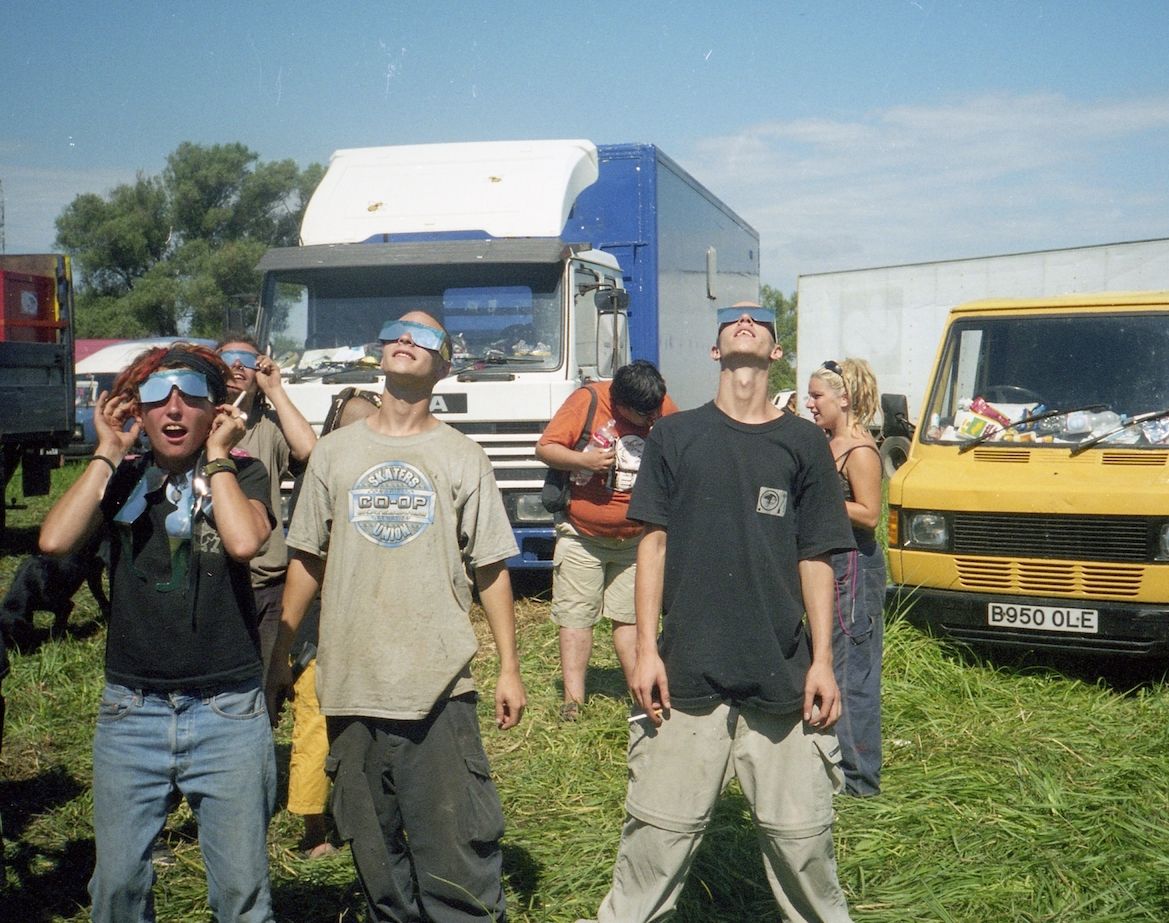
Enter the Rave Continuum
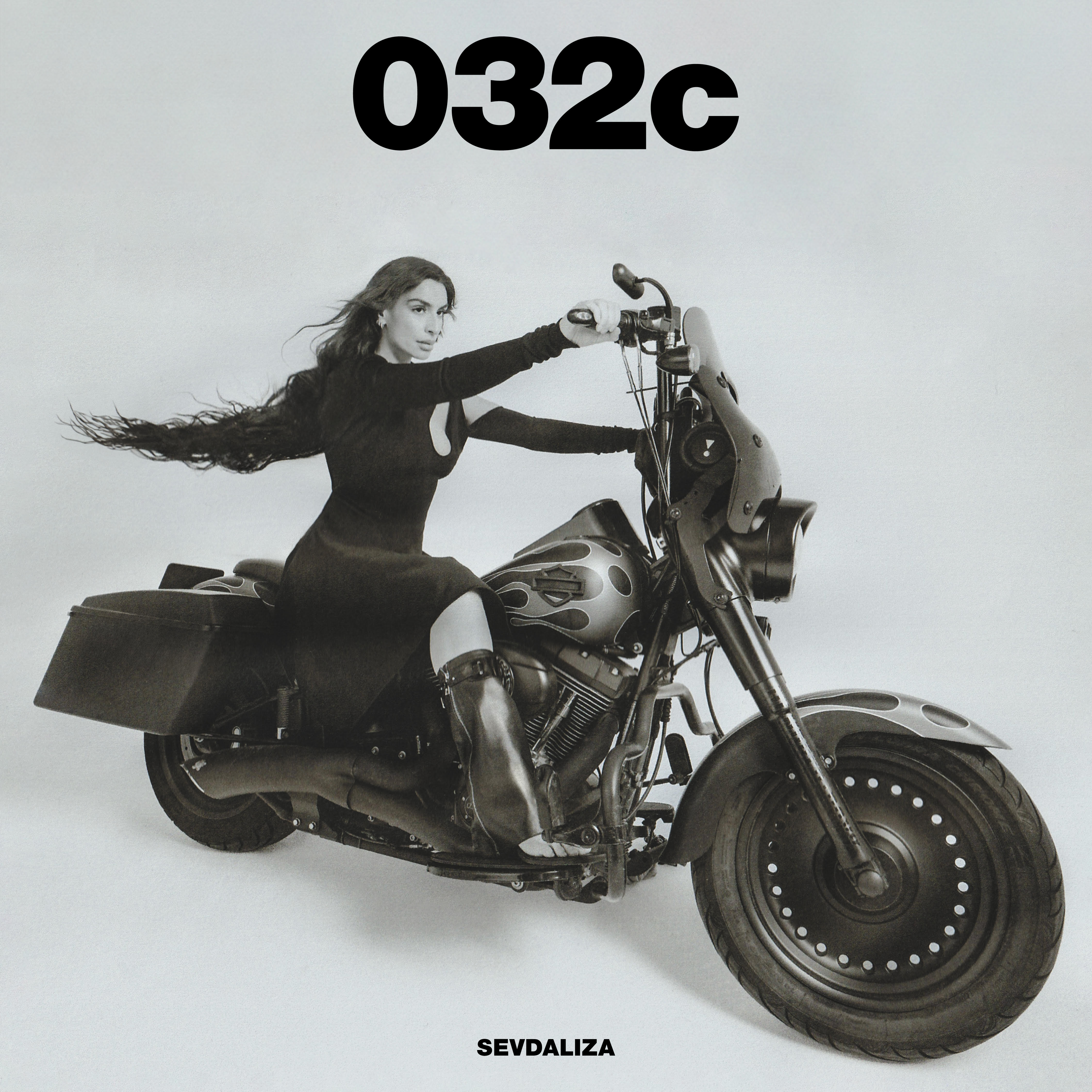
Sevdaliza Questions Human Authenticity
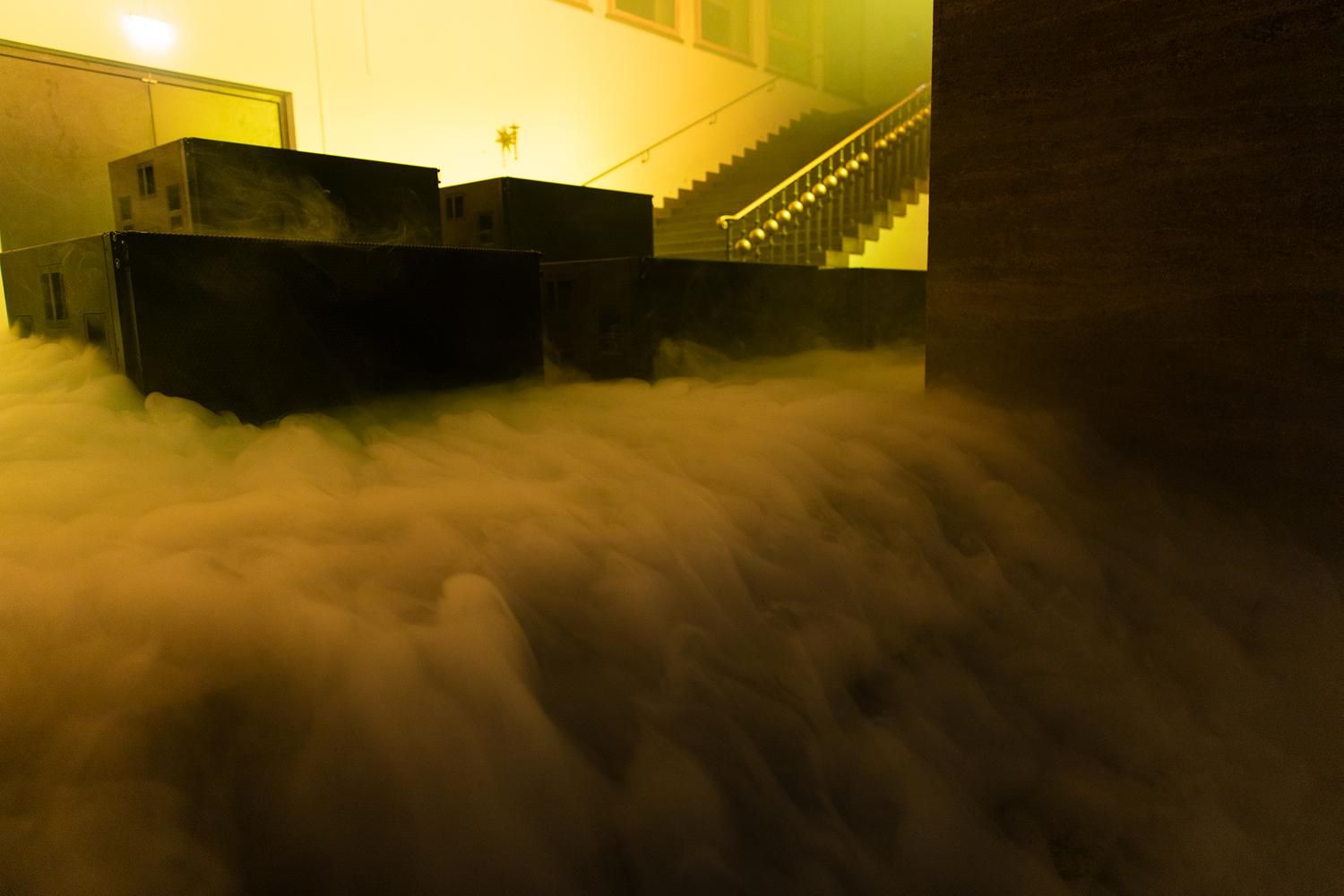
Post-Music: Apocalypse Soundcheck
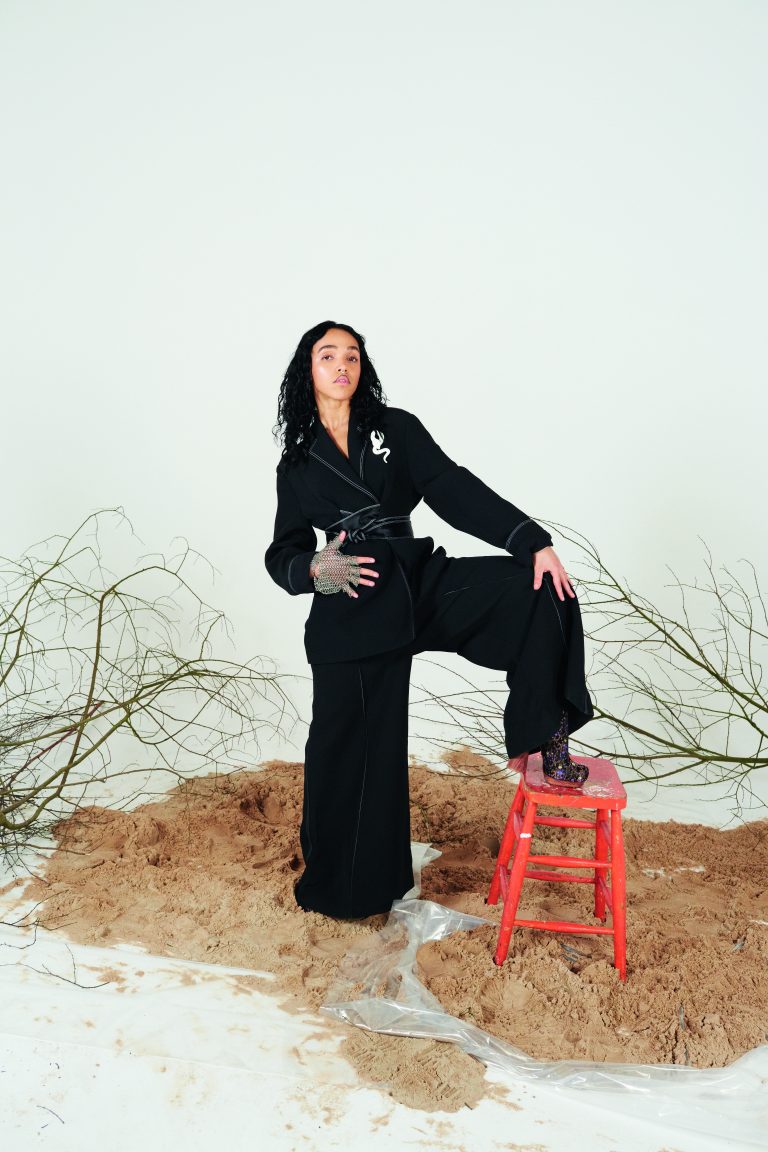
FKA TWIGS Returns to Planet Earth
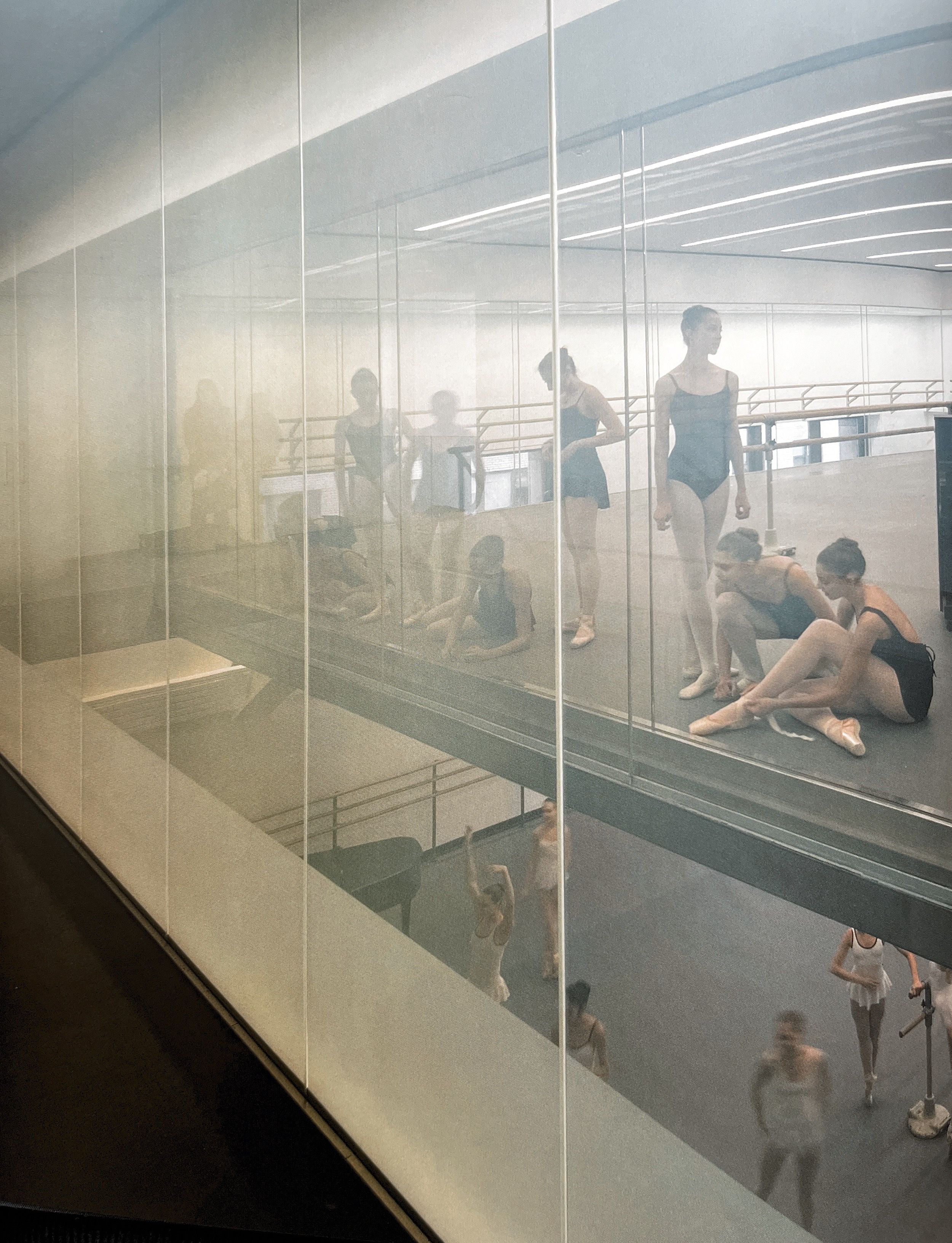
From the Sleep Side: DILLER SCOFIDIO + RENFRO